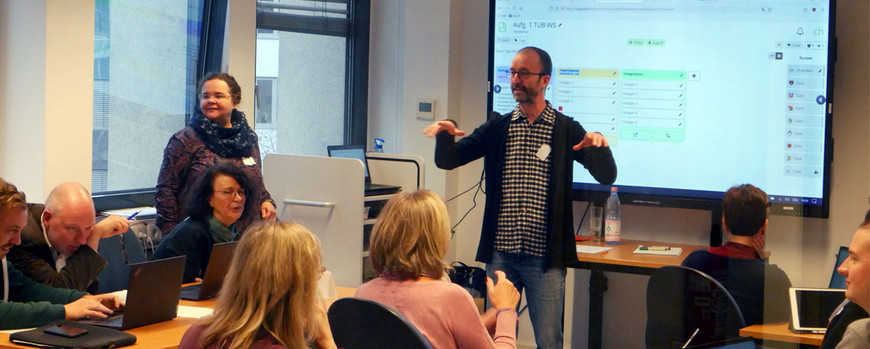Competence-oriented, action-oriented, integrated - What belongs together in learning should not be separated artificially when testing and assessing
Workshop on integrated testing and examining, November 8, 2024, TU Berlin
In our teaching practice we strive to promote our students’ language skills in a targeted manner. We do not (usually) focus on errors, but on learning objectives and learning processes. In our courses, we develop know-how for (complex) linguistic activities - to be put into practice. At the end of each semester, however, under time pressure and for practical reasons of feasibility, we sometimes ‘pull out of the hat’, i.e. conjure up, tests and exams that merely look separately at reading comprehension, listening comprehension, writing and speaking. - But what are we actually testing by means of such procedures? Can we make valid statements about the level of competence achieved according to the Common European Framework of Reference for Languages on this basis? Do such test procedures fit in well with the teaching and learning culture practiced at Zessko?
Perhaps we should start thinking about whether and how to test and assess as directly as possible by observing complex linguistic actions of our students and by making those measurable on the basis of concrete criteria. Integrated formats can offer an approach for this.
In their workshop as part of the 50th anniversary of ZEMS at Technische Universität Berlin (Jubiläum 50 Jahre ZEMS an der Technischen Universität Berlin) on November 8, 2024, Olga Holland and Christoph Lehker discussed this topic together with colleagues from other language centers. Using practical examples, they identified challenges for the development of integrated tests and examinations and outlined potential steps for their implementation.
Contact: Olga Holland, Christoph Lehker
Translation: Beate Göldner
Published on November 11, 2024

